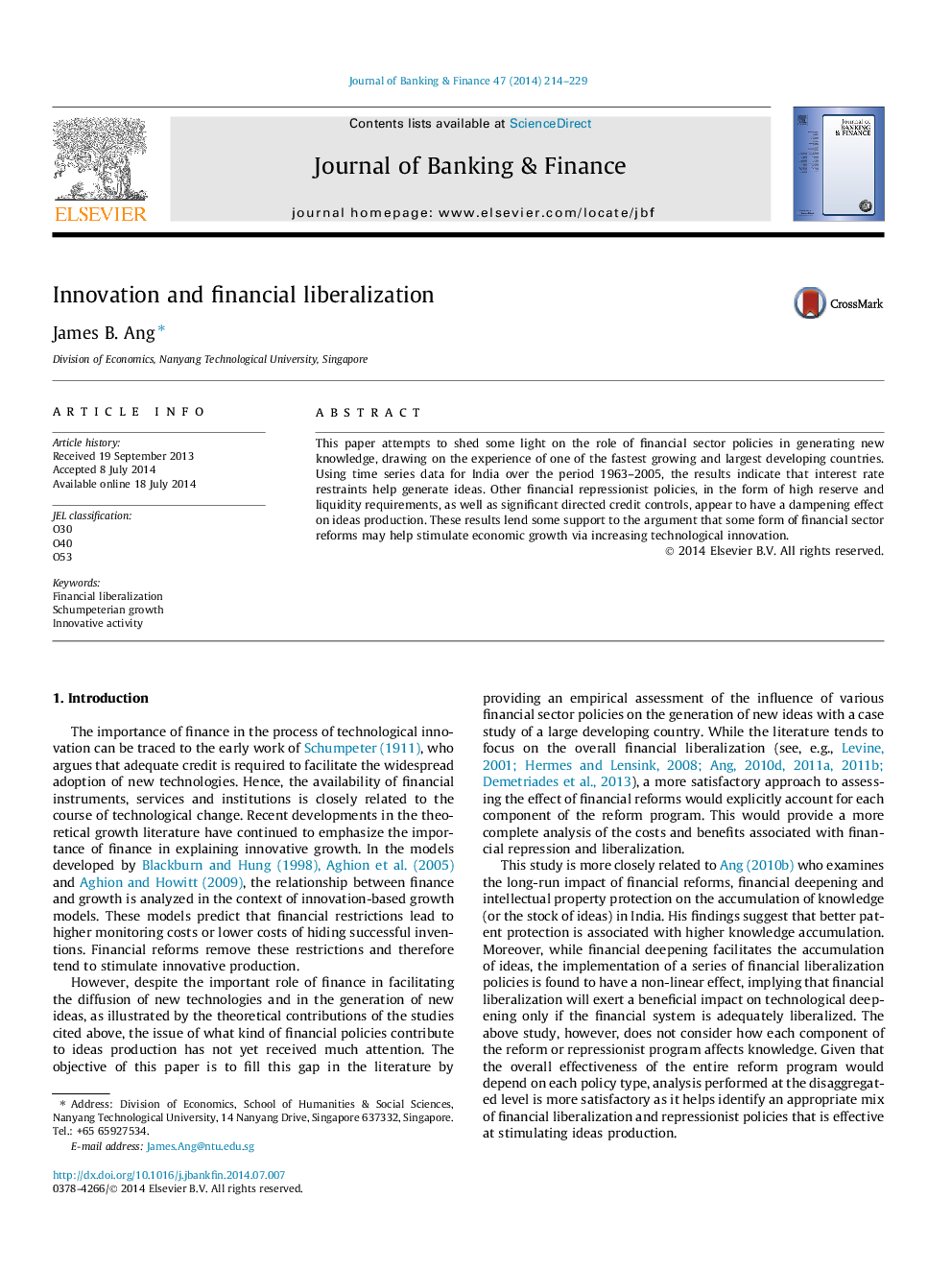| Article ID | Journal | Published Year | Pages | File Type |
|---|---|---|---|---|
| 5088996 | Journal of Banking & Finance | 2014 | 16 Pages |
Abstract
This paper attempts to shed some light on the role of financial sector policies in generating new knowledge, drawing on the experience of one of the fastest growing and largest developing countries. Using time series data for India over the period 1963-2005, the results indicate that interest rate restraints help generate ideas. Other financial repressionist policies, in the form of high reserve and liquidity requirements, as well as significant directed credit controls, appear to have a dampening effect on ideas production. These results lend some support to the argument that some form of financial sector reforms may help stimulate economic growth via increasing technological innovation.
Related Topics
Social Sciences and Humanities
Economics, Econometrics and Finance
Economics and Econometrics
Authors
James B. Ang,
